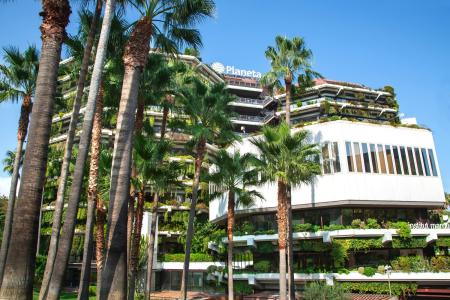About CONEXUS
Project Summary
Across Europe and Latin America, many of our cities face the same challenges. By sharing our experience and knowledge we can learn from each other, identify and implement the right solutions for each landscape.
Nature-based solutions and ecosystem restoration have the potential to enable cities to overcome many challenges they share, simultaneously providing environmental, social and economic benefits.
Cities and communities need evidence of long-term viability before investing in nature-based solutions and ecosystem restoration. The Conexus project provided context-relevant evidence of the effects and long-term viability of these approaches.
Conexus was a four-year project, pooling accessible knowledge on how to restore natural ecosystems; improve the quality of life in and around cities; and support collaboration between Latin America and Europe. The project received funding from the European Union’s Horizon 2020 research and innovation programme and ended in August 2024.

Approach
CONEXUS demonstrated how nature-based solutions can reverse the harmful effects of urbanisation through the restoration and effective functioning of urban and peri-urban ecosystems and the services they provide. The project showed how nature-based solutions can help restore the relationship between people and nature. It demonstrated how nature-based solutions can deliver a wide range of benefits by piloting innovative ways of integrating nature-based solutions within their local contexts.
The key principles of the Conexus approach were:
Nature-based thinking - nature-based solutions are places in their own right rather than installations, helping them to become more resilient and sustainable.
Place-based approach - nature-based solutions are important for place-making (creating nature-based solutions), place-keeping (maintaining into the future) and place-prescribing (policies are programmes designed to engage people).
Co-production - engaging project partners and communities in the creation and delivery of policies and nature-based solutions.
Mosaic governance models - establishing flexible teams from different sectors and levels to collaborate on specific issues and projects.
Nature-based solutions at multiple scales - creating and evaluating nature-based solutions at different scales: macro (e.g. city wide, strategic network); meso (e.g. river corridor restoration, food production); and micro (e.g. schools grounds, communal spaces).
Core project activities were the nexus between practice, policy, and research, delivering lasting impact. Project activities were led by pairings of EU and Latin American partners, spanning the public, private, not-for-profit, and research sectors. The project was structured to address the challenge of coordinating and promoting access to shared and structured knowledge on nature-based solutions.
Project activities included:
Engaging: Growing-Extending-Marketing - Helped secure long-term impacts by engaging stakeholders and sharing inspiration, knowledge, skills, and NBS processes.
Contextualising-Integrating-Planning - Built a shared understanding of nature-based solutions to enable implementation on global and local scales.
Restoring: demonstrating place-based nature-based solutions - Established Life-Labs in the seven Conexus cities to involve local communities and organisations to test methods for nature-based solutions to demonstrate their benefits.
Analysing-Synthesising-Guiding - Analysed the benefits and drawbacks of NBS in creating liveable, healthier, and more resilient cities.
Valorising-Investing - Detailed the costs and benefits of NBS to show decision makers that NBS are comprehensive solutions.
- Hubbing-Sharing-Clustering - Shared resources to facilitate learning and secure impact by developing products from the strategic lessons learned between partners.